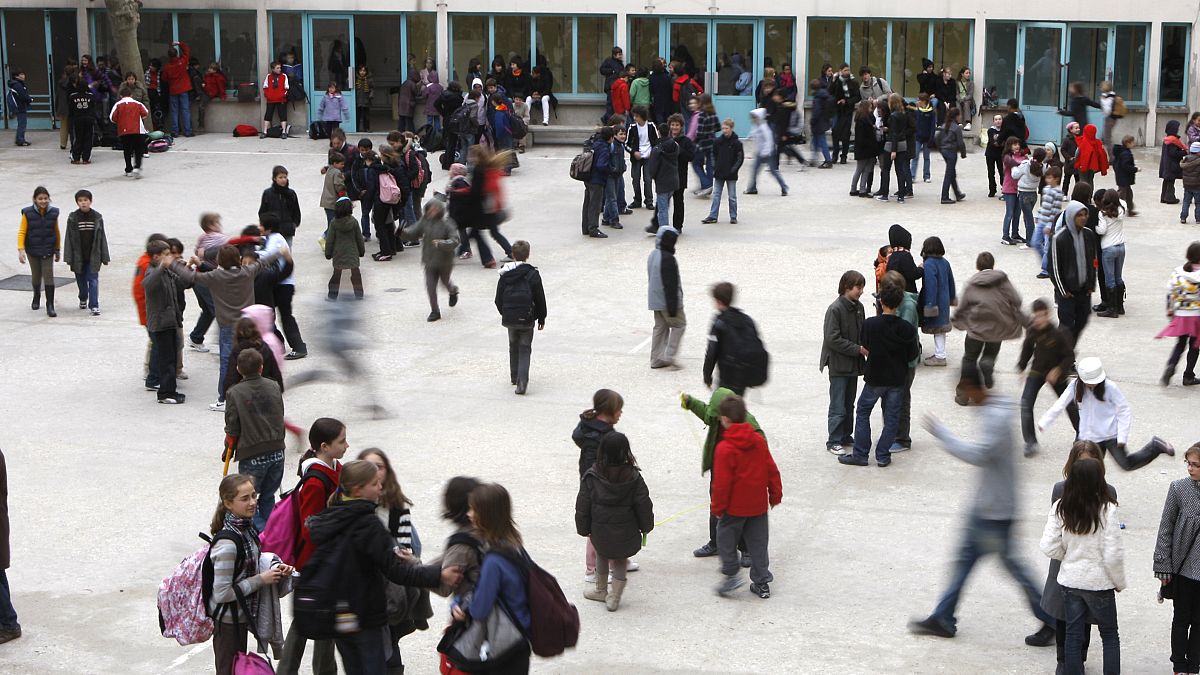Teachers are using a new book to help students decide for themselves.
A book attracting attention for its fresh approach to the Koran is being used by some schools in France and Belgium to confront the risk of radicalisation among students.
The book takes the form of a dialogue between the two authors who try to understand the meaning of seemingly outdated precepts inside the Koran.
‘Finalement, il y a quoi dans le Coran?’ (What’s really in the Koran?) has been written by Rachid Benzine, a French-Moroccan scholar on Islam, and Ismael Saïdi, a Belgian-Moroccan playwright best known for his satirical play Jihad.
The candid Ismael comes to his friend Rachid, a teacher, to resolve the conflict between the text’s literal meaning and the norms of contemporary society. Across nine chapters, they discuss the history of Islam and deconstruct politically charged concepts like sharia law and jihad, all the while peppered with references to Netflix and Game of Thrones to keep younger readers engaged.
Présentation du nouveau livre de Rachid Benzine et Ismaël Saidi : Finalement, il y a quoi dans le coran ? Reportage radio à venir
RTBFinfo</a> <a href="https://t.co/RwlMe6GNRM">pic.twitter.com/RwlMe6GNRM</a></p>— Mel Saint-Surge (MelBxl) 1 juin 2017
Ce que le #Coran dit, et ne dit pas https://t.co/fvDPWJuwUj
RachidBenzine</a> <a href="https://twitter.com/ismaelsaidi">ismaelsaidi#livre#decodage parBeadelvaux</a> <a href="https://t.co/nEvoF87Dui">pic.twitter.com/nEvoF87Dui</a></p>— Le Soir+ (lesoirplus) 31 mai 2017
Benzine, the book’s co-author, is well-known inside French-speaking academic circles for advocating a liberal Islam and a modernized interpretation of the Koran. He is also a frequent lecturer in high schools across Belgium, where his work with students inspired him to write the book.
“[Saïdi and I] encountered several groups of students and listened to their many preoccupations; questions about the role of violence in Islam, questions about halal, questions about the Prophet. The book is a way to critically search for these answers,” Benzine said on the release of his book in Brussels.
Erik Van den Berghe, director of the Atheneum Anderlecht, a public school in one of Brussels’ predominantly Muslim neighborhoods, has followed the ‘Benzine method’ of historicizing the Koran when discussing Islam with students.
“My students have very high respect for Benzine. His method does not attempt to give a ‘yes’ or a ‘no’ to whether women should be required to wear the hijab, for example, that is a religious question for the imams. Instead, it arms students with facts that they could have learned themselves and with critical minds, which they can use to think independently about their religious beliefs,” he said.
“It is the honest truth that Muslims are stigmatized for their beliefs. We work to stop the ‘us’ and ‘them’ mentality, which both Islamic fundamentalists and right-wing populists want to exaggerate in civil society,” he said.
— Rachid Benzine (@BenzineRachid) 24 juin 2017
By and large, schools in France and Belgium have become one of the first lines of defence in the fight against Islamic radicalization, although that role is complicated by their need to remain neutral towards their students’ beliefs.
Jacky Goris, director of the Scholengroep Brussel, an association of Dutch-speaking schools inside the Belgian capital, said: “Three to four years ago, our schools had to react to certain changes among our students. First, a group of our students stopped participating in swimming lessons because of a warning from their imams, and then, some even refused to partake in biology classes because of the theory of evolution.
“Ten years ago, none of this was the case. It began to feel as if one part of our school’s population was auto-segregating, building a wall between itself and the rest of society.”
Rachid Benzine – Finalement, il y a quoi dans le Coran ? – https://t.co/r2IFTPDm2c#iTunes
— Rachid Benzine (@BenzineRachid) 7 juin 2017
One hope is that the contextual and neutral approach of Benzine and Saïdi’s new book can open up a dialogue about the place of Islam in European communities.
“I keep believing in a system that unites different religions through dialogue. We need to share common values,” Goris said.
For Muslims living in Europe, the rise of fundamentalism and of perceived self-segregation from non-Muslims has prompted a wave of religious soul-searching.
On the one hand, conservative imams in Europe have attracted increasing numbers of followers and have insisted that Muslims must strictly obey the rules and precepts of the Koran, even if they conflict with secular values.
“We are supposed to prefer man-made words over words conveyed by God? The Koran is our anthem, our identity. It has even been said that the Koran is our constitution. And there is not a single nation that takes its identity lightly,” said Mohamed Khatebi, a well-known imam active in both the Netherlands and France, in a sermon from 2015 that attracted worldwide attention.
There is nonetheless a sizable group within Muslim communities who argue that so-called fundamentalists have only gleaned the surface of Koranic teachings.
“Most of our young Muslims who take the extreme path know hardly anything about the Koran. If you ask them how much of the Koran [they] memorized, they will say perhaps a few sourish [chapters]. But their understanding of the Quran is not correct,” said Ibrahim Letoush, the director of the Islamic Development and Research Academy in the city of Ghent, located 60 kilometers west of Brussels.
Educators hope at the very least that open dialogue and critical thinking can supplant the violent pull of fundamentalism, promoting a critical spirit and open mind in relation to all forms of belief.
“We try to explain that different interpretations of any religion exist and that you cannot limit yourself to a literal view of the Koran, or of any text. Just like there was with Christianity, beginning in the seventeenth century, the same kind of evolution needs to take place within Islam,” Goris said.
By Alexander Saeedy
